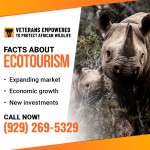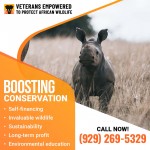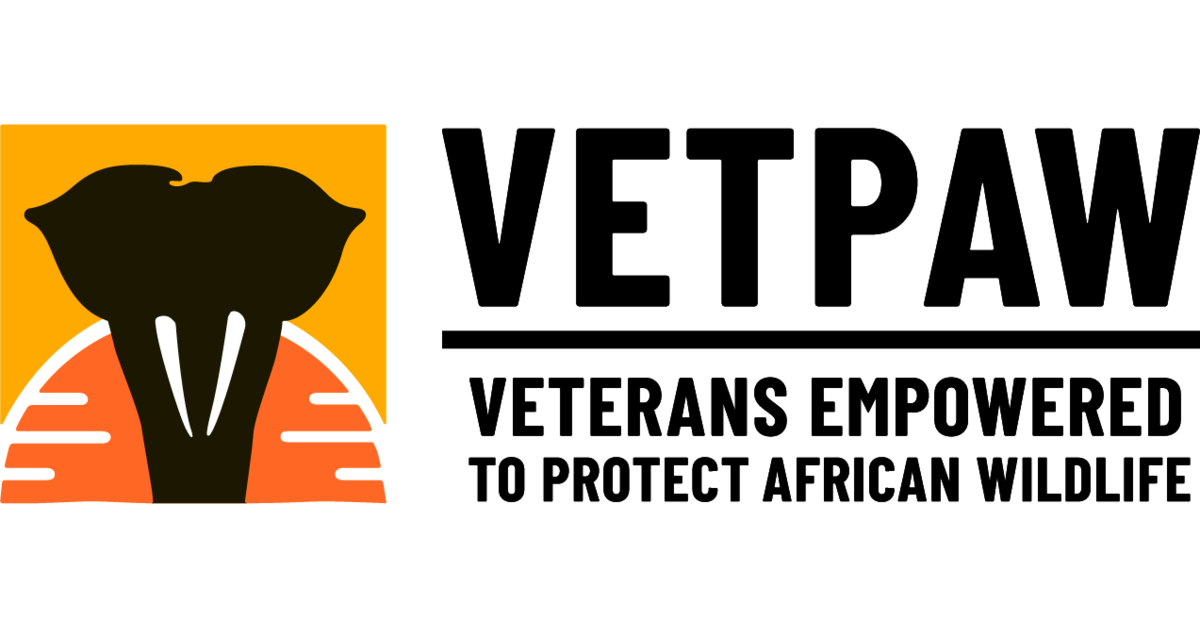Facts about eco-tourism and its impact on conservation
Ecotourism emerged in the late 1980s with the purpose of using tourism to reinforce conservation and vice versa while deepening the criteria for sustainability. VETPAW reviews some facts about ecotourism, how it differs from nature tourism, and how it contributes to conservation efforts.
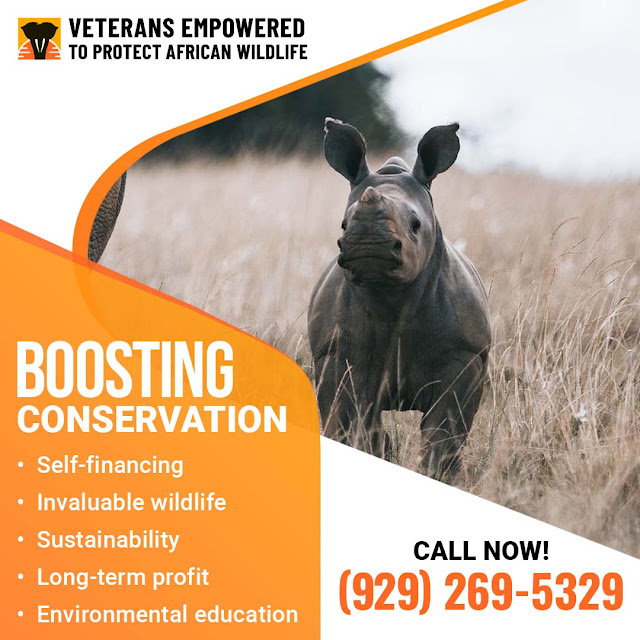
Difference between nature tourism and ecotourism
Ecotourism is defined by The International Ecotourism Society as: “responsible travel to natural areas that conserves the environment, sustains the well-being of the local people, and involves interpretation and education”.
Ecotourism differs from nature tourism and outdoor recreation by its conservation and development goals. It is based on the hypothesis that under ecotourism wildlife and biodiversity will benefit, incentives will be created to protect landscapes, and local communities will be supported.
Facts about ecotourism
- Expanding market: The ecotourism industry is growing rapidly to emerge as one of the most important sectors of the international tourism industry. It makes up 7 percent of the world tourism market. Demand for quality ecotourism destinations is expected to rise as urban congestion, pollution, crowding, and concern for the natural environment also increase.
- Economic growth: Developing countries with established ecotourism destinations have experienced a surge in ecotourist numbers and the receipts from their visits. Direct economic contributions from park entrance fees and indirect expenditures on such items as hotel rooms, rental cars, and food can safely be estimated to be in billions of dollars annually.
- New investments: Most developing countries with natural attractions such as pristine beaches, tropical ecosystems, and archeological ruins seek to tap into this multibillion-dollar ecotourism industry. They are investing in preserving the natural and cultural attractions to foster foreign capital that will propel economic development.
Boosting Conservation
- Self-financing: Revenue derived from park-entrance fees and similar sources helps to support the management and operation of protected areas.
- Invaluable wildlife: As local communities grasp the economic benefits of ecotourism to their survival and prosperity, it changes their attitude towards wildlife. They become the biggest ambassadors of their conservation because when wildlife pays for their bills, wildlife becomes invaluable to them.
- Sustainability: Various park authorities and similar entities dole out their earnings in sponsoring sustainable development projects. The local communities benefit immensely from these and employment is generated owing to these projects.
- Long-term profit: Ecotourism has proven to be a more sustainable development strategy than extractive uses of the land such as logging, grazing, mining, or agriculture. A study of rainforest land use in Bahia, Brazil by Conservation International determined that logging the forest and conversion of forest into pasture land were not profitable over the long term, unlike ecotourism.
- Environmental education: Some of the income from ecotourism can be invested back into educating the local children about the importance of the ecosystem and how it impacts human beings. This education and awareness among local communities help sustain the wildlife conservation efforts.
VETPAW works tirelessly to create awareness among the local communities about the value of wildlife and promotes ecotourism via The VETPAW Experience that allows tourists to experience wildlife at its best.
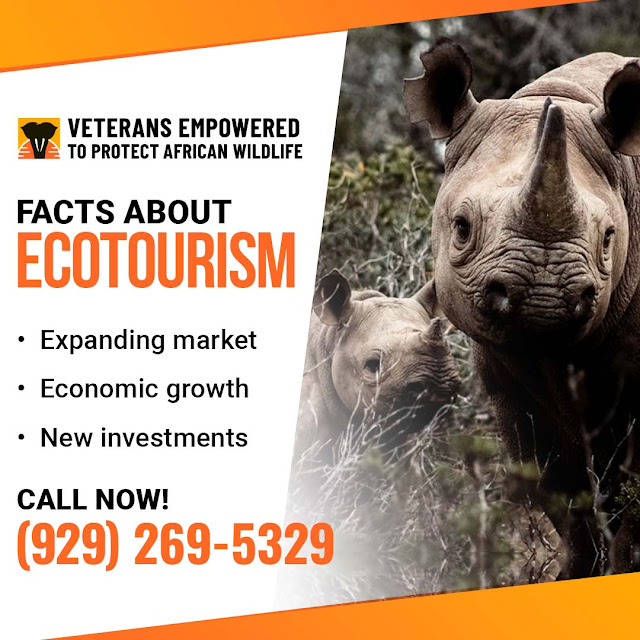
VETPAW - Veterans Empowered to Protect African Wildlife
Founded in 2013, VETPAW is a non-profit organization and a community of US war veterans dedicated to protecting African wildlife and training local African rangers in the war against poaching.

